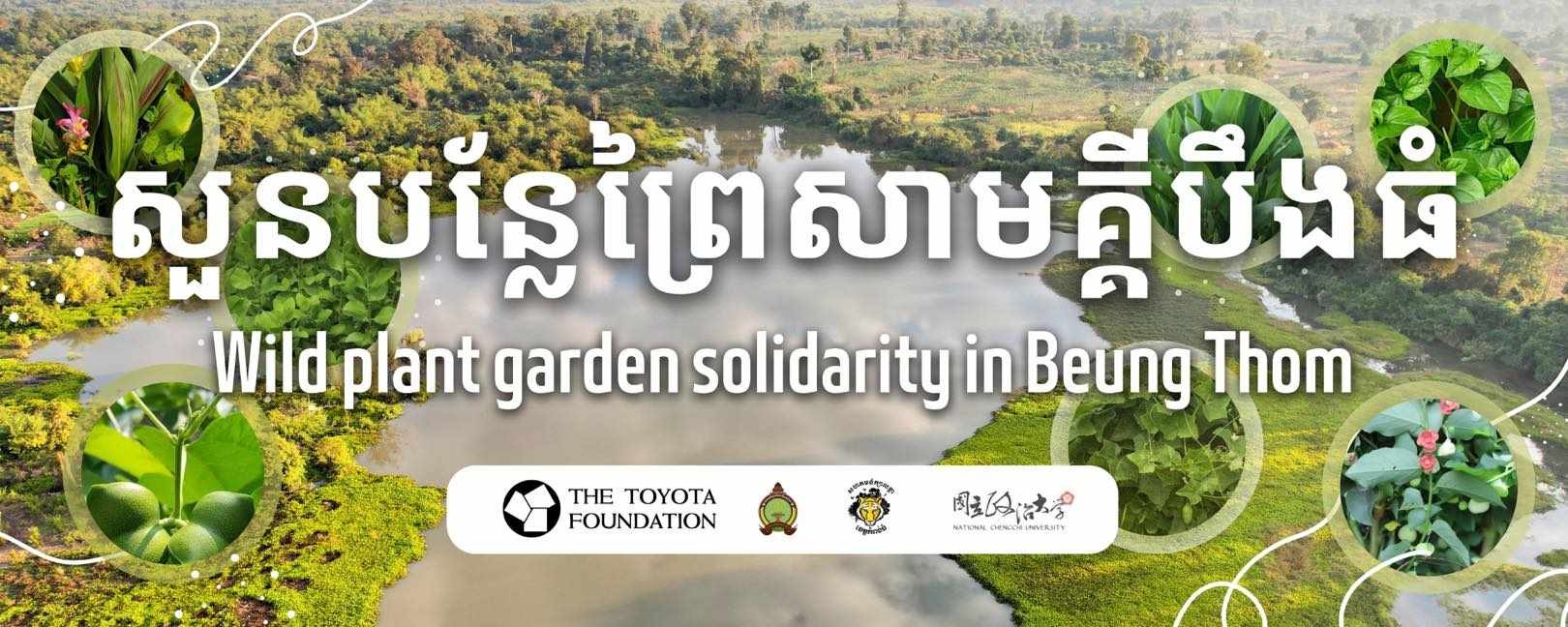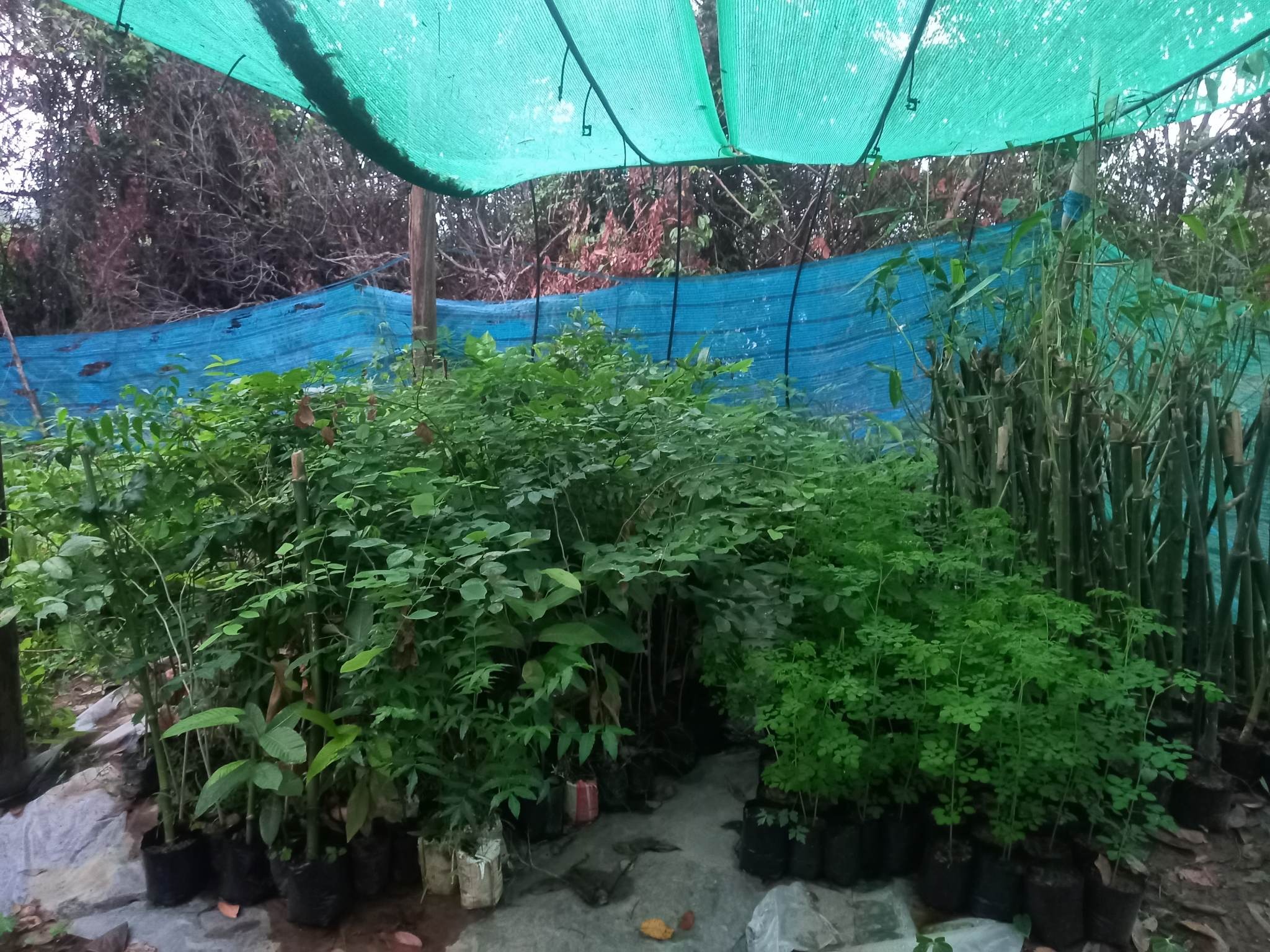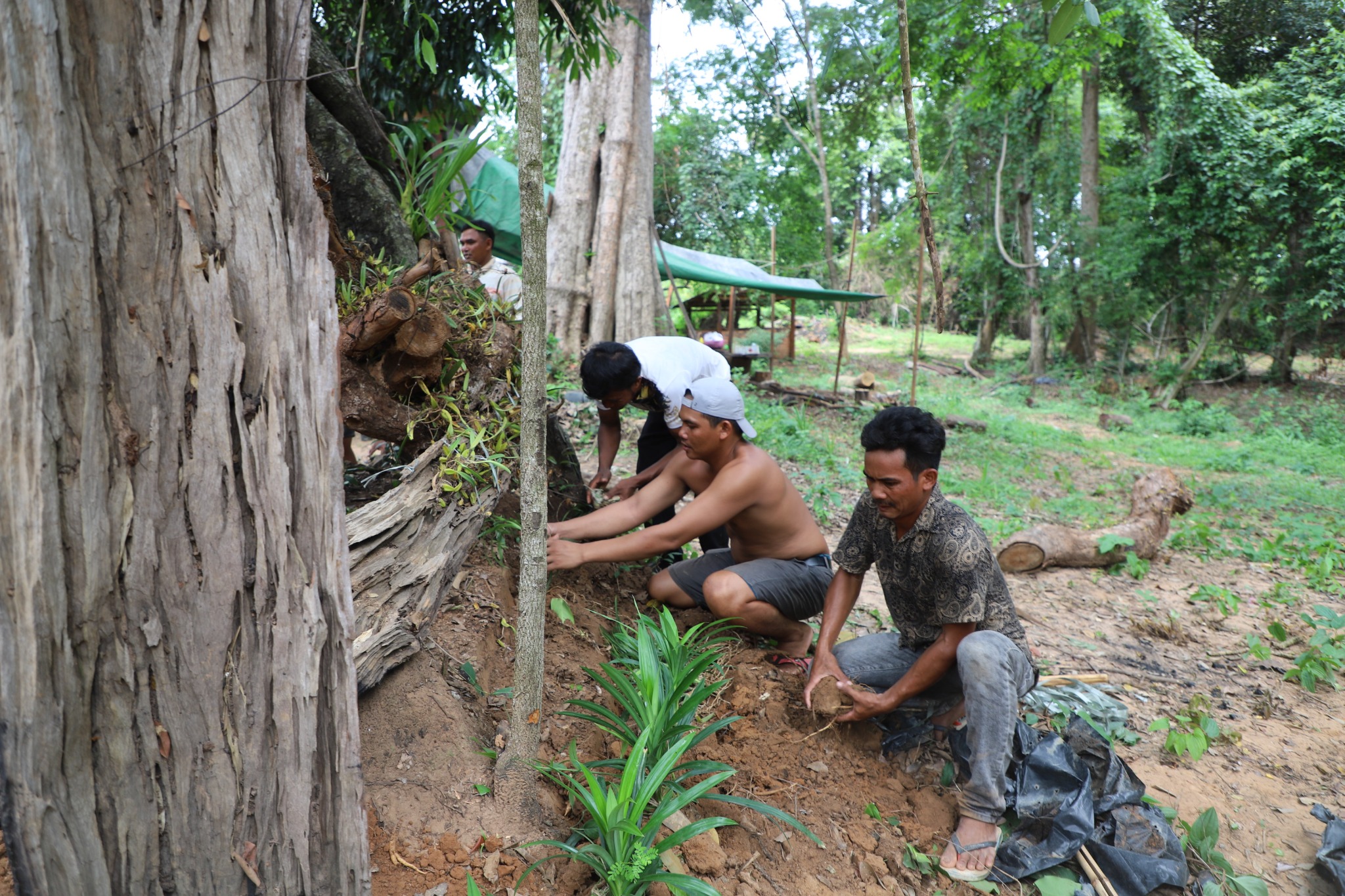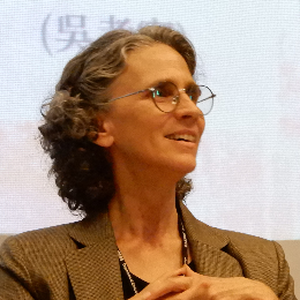
Wild Edible Gardens
This project collaborates with members of a community fishery who are developing their area for ecotourism and with the Faculty of Agriculture and Food Processing at University of Battambang in Cambodia, colleagues in the village are learning to grow and transplant wild edible plants with the goal of creating ‘Food Forest’ landscapes in the village and surrounding areas. These village 'food forests' were not necessary even five years ago, but Cambodia's rapid deforestation has left people without their basic foods.
The focus is on food, on plants, and their interface between the home, the village, and the forest. We think it might make a space where the local hierarchies can be deployed toward collective actions.
Elders guide youths, women manage food, and men manage forests: The gendered and
generational elements of this have profound implications for new knowledge.
Wild plants were not cultivated in the village, those were for the forest. Now the forest is gone and the dietary shift from forest to market food impacts village health. Loss of forest also cuts youths off from the intangible skills and knowledge of forest foods and medicines.
This garden project is one of the ways that formerly forest-based communities are creating an alternative story of development and history for themselves as people often considered to be outside of both.

Plant delivery from Battambang

Planting orchids and medicinal plants
Wild plants Cultivated and Re-wilded
The University of Battambang experiments with propagating forest plants. After five years of walking the mountain with local elders, they have identified and gathered a significant number of plants for experiments in reproduction. The photos above are at 'Big Lake' community fishery in Kampong Thom, where the Battambang team brought the first collection of plants for re-wilding and propagating in the spring of 2023.
